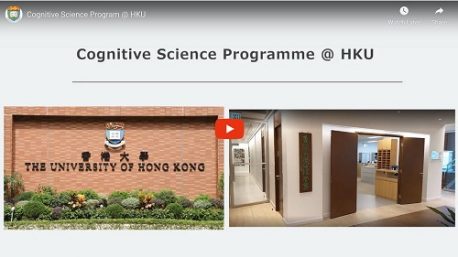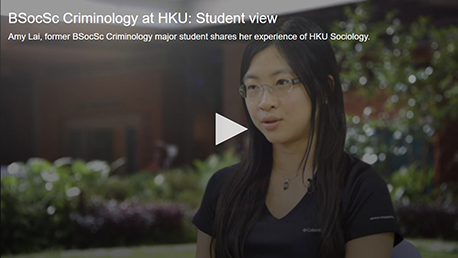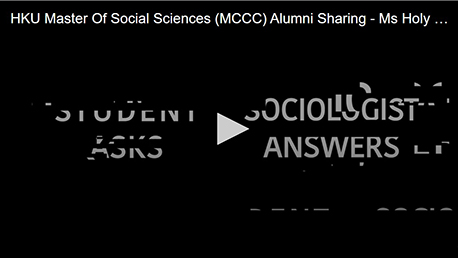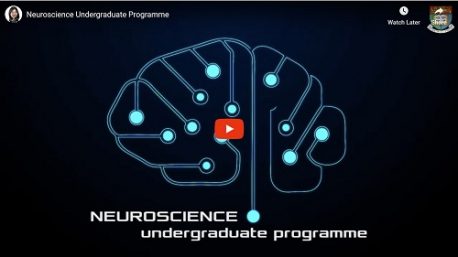Students in this BSocSc curriculum may choose to major in one of the five core disciplines: China Studies, Geography, Politics and Public Administration, Social Policy and Social Development, and Sociology. Students may also opt for a double major in second options as well as majors offered by other Faculties of the University. Students can choose to combine a major with one or two minors. The BSocSc curriculum requires all students, as a condition of graduation, to undertake off-campus learning under the twin themes: Social Innovation and Global Citizenship.
Jointly organised by Social Sciences and Arts, the programme addresses the growing interest in the study of Greater China from a multi-disciplinary approach. Wide range of courses are offered to introduce China’s political, economical, social, and cultural traits in the past and present. The major also offers experiential learning and exchange opportunities.
Geography is a diverse discipline that involves both natural and social sciences with a focus on the major issues facing societies in a rapidly changing world. This major provides students with an understanding of the relationships between people and their natural and social environments, how these relationships have changed over time and space, and the role of geography in the issues and problems facing people, places and societies.
This major aims to provide students with basic knowledge in political science and public administration, as well as develop students’ ability in critical analysis of complex political issues in the real world. Students may specialise in one of the following streams: Comparative Politics, International Politics, Political Theory and Ethics, or Public Administration.
This major aims to build students’ competency to become change agents in the society and their communities. Students are exposed to contemporary social development issues and social policy responses to these issues in the local and global contexts. Graduates are competent to work in non-profit, for-profit, and social enterprise sectors for social changes and to be innovators in these sectors.
This major seeks to nurture students to become knowledgeable, critical and caring members of society. The programme offers students a solid foundation in Sociology. Its wide ranging course offerings allow students to examine specialist areas within the discipline, including media and culture, cultural heritage, and criminology.
Cognitive Science is a scientific study of the mind and mental phenomena which adopts methodologies from computer science, psychology, philosophy, linguistics, and neuroscience. Students are equipped to integrate results from across the different approaches to fully understand the complexities of the mind and the brain.
This major equips students with basic theoretical orientations and therapeutic skills in counselling. Through the study of the discipline, students are sensitized to the ethical issues, professional concerns, and emic and etic counselling techniques in various settings. Students are also prepared for receiving further training to become a counselling professional.
Criminology seeks to enhance students’ critical understanding of crime and the criminal justice system. Phenomena such as corruption, courts, cybercrime, drug use, fraud, policing and prisons are investigated. This allows students to understand the causes of, and solutions for, crime and social control issues both locally and globally.
This major allows students to understand the impact of the media and culture on society. Phenomena such as cinema, creative industries, cultural hubs, gender/sexualities, social media and subcultures are examined through a social lens. Students gain knowledge and approaches for positively influencing social life through enhancing media and culture.
Neuroscience is the interdisciplinary study of the structure and function of the nervous system, with focuses on the neural mechanisms underlying behaviour cognition and perception in humans. Students are given rigorous academic training to prepare them for academic careers in related fields as well as further medical training.
This major allows students to acquire basic knowledge about all areas of psychology, including the biological and cognitive bases of behaviour, developmental changes, social influences and psychopathology. Students may pursue professional training in applied aspects of psychology (e.g., Clinical Psychology, Education Psychology) and advanced research training after completing this programme.
The broad spectrum of courses in this major provides students with a systematic understanding of the basic approaches and key theories of urban governance, planning, urban environmental management, and transport planning issues in Hong Kong, Mainland China, and the East Asia regions. Students are prepared to pursue careers in the related fields after completion of the programme.
This minor contains a variety of course elements on wellness, global citizenship, and cultural sensitivity which are offered by different units in social sciences and business. It allows students to become able to manage a culturally and psychologically diverse workforce.
This minor seeks to provide students with learning and experience in three broad categories – conceptual, applied and critical thinking. Students are equipped with basic training to understand the role of journalism in a global society, ethical principles of gathering information, and the use of technology in producing professional journalism.
Curriculum Structure
Career Prospects
Civil Service
Commerce & Industry
Community, Social &
Personal Services
Education Institutions












